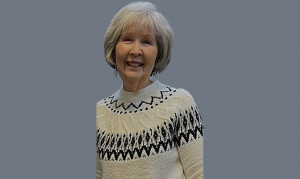One of the painful realities of our time is that most public schools in most low-income, inner-city neighborhoods produce educational outcomes that are far below the outcomes in other neighborhoods, and especially in more affluent neighborhoods.
Attempts to assign blame are too numerous to name, much less explore. But as someone who has, for more than 40 years, been researching those particular minority schools that have been successful, I am struck both by their success and by how varied are the ways that success has been achieved.
In doing research for a 1976 article, “Patterns of Black Excellence,” I discovered that the educational methods used to educate low-income, minority children in successful schools ranged from very traditional and strict methods in some parochial schools to very different approaches in other schools.
One of the most successful schools I visited was in an aging building in a rundown ghetto neighborhood in New York, where a friend told me that I was “brave” — he meant foolhardy — to park a car.
Instead of being given a guided tour of the school, as happens in too many other places, the principal simply walked with me down the corridors on each floor, and let me decide which classroom door I wanted to open and go in.
Wherever we went in, the class in progress was clearly one where children were learning, were well-behaved, and were saying intelligent things in plain English. They were doing work that was either at their grade level or somewhat above their grade level.
Yet most of these kids were looked like kids you can see in any ghetto across the country. Most were from families whose incomes were low enough for their children to qualify for free or subsidized lunches in school.
After a day spent observing the classes, and later examining the statistics on their outstanding performances on various tests, I was moved to the verge of tears as I left. Why couldn’t this be done in many other schools?
One reason was that this principal did not follow the rigid dogmas imposed by the educational establishment, but used whatever ways of teaching produced good results. That makes waves. There were attempts to get him removed as principal.
Nor was he the only successful educator to come under fire from the educational establishment.
In California, high school teacher Jaime Escalante taught calculus so successfully in a predominantly Latino school that, at one time, something like one-fourth of all Latino students who passed the AP Calculus test — in the entire country — came from the school where he taught.
Like other highly successful educators, especially in places where failure is the norm, Escalante was controversial within the education establishment. The teachers’ union demanded that his large math class be reduced in size. He ended up leaving that high school to go teach elsewhere.
When Marva Collins was a public school teacher who came to work early to help some of her students, and who used teaching methods that differed from what education schools and education bureaucrats prescribed, she likewise came under fire.
She left and created her own school in a Chicago black neighborhood. This was done with little money and initially with old textbooks discarded by the public school system. Her success was striking enough for her to be offered an opportunity to be nominated to be Secretary of Education.
After much soul-searching, Marva Collins declined the offer. It was probably just as well. She could run her own school in Chicago as she wished. In Washington, the political jungle was another story.
Against this background, it is hardly surprising that Betsy DeVos, who has for more than 20 years been promoting parental choice in the schools their children attend, has come under heavy fire from the educational establishment.
If she becomes Secretary of Education, the stranglehold of the teachers’ unions and the educational bureaucracy on the education of millions of students will be in jeopardy. If her nomination is rejected, millions of children from low-income, inner-city families will lose a chance to escape a painfully failing system.
[Thomas Sowell is a senior fellow at the Hoover Institution, Stanford University, Stanford, CA 94305. His website is www.tsowell.com.] COPYRIGHT 2017 CREATORS.COM












Leave a Comment
You must be logged in to post a comment.